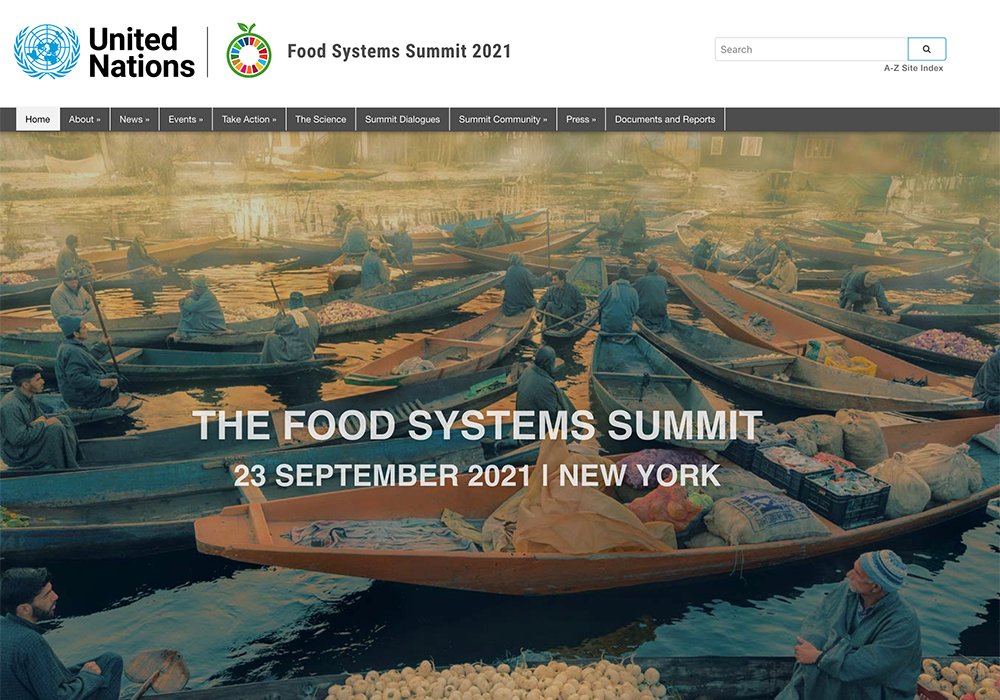Election muted Canada’s UN food ambition

Timing of UN Food Summit and Canadian federal election conflicted leaving sparse national representation at global event
Canada’s participation at the United Nations Food Systems Summit was muted.
Taking place just days after the conclusion of the federal election, there were no official statements or commitments from Canada. The summit was designed to foster dialogue on how nations can create more sustainable food systems.
Voters cast ballots on Sept. 20, days before the UN attendees virtually convened on Sept. 23.
By the time the summit ended, more than 300 different commitments had been made by stakeholders and many nations laid out plans to build healthier food systems.
“For my entire career, we’ve been saying, ‘nobody talks about food systems. It falls between cracks, no minister pays attention to it, it’s not a policy issue,’ ” said Evan Fraser, director of the Arrell Food Institute and a University of Guelph professor who helped lead domestic dialogues and planning ahead of the international summit.
“The United Nations was able to bring together hundreds of the most senior policymakers from around the world to talk about food.”
But in Canada, senior leaders mostly paid attention to the national election rather than the summit.
“We did not have the sort of presence or ambition that I think we could have, or we would have, if (the summit) didn’t happen days after a federal election,” Fraser said.
During the election, each political party made its own case for Canada becoming a major agri-food producer, but any ambition of global leadership will be measured by what happens under the re-elected Liberal government.
To achieve the overarching goals of zero hunger, zero poverty, gender equality and climate action by 2030, some nations made bold commitments to establish themselves as global leaders.
The U.S. made arguably the biggest splash, pledging US$10 billion over five years. Half of that money is being used to “ensure access to healthy diets for all Americans, and investments in fair and efficient markets to improve the inclusivity and resilience of our food systems.”
“We must use the power of ingenuity to improve on food systems so they provide safe, nutritious, affordable, and accessible food for all, while conserving natural resources, and combating the climate crisis,” said U.S. Department of Agriculture Secretary Tom Vilsack at the summit.
While not always backed up by billions of dollars, many countries announced national plans or initiatives aimed at creating nutritious, climate-friendly food systems.
Canada released a list of vision statements it intended on bringing to the summit, including a commitment to address food security by ensuring citizens would have access to a “sufficient amount of safe, nutritious and culturally diverse food” by 2030.
But by the end of the conference, Canada’s once promising ambition to emerge as a global leader disappeared. Press releases and briefs following the event hardly, if ever, mentioned Canada, one of the few member states to not make any formal statement.
The country’s standing in the eyes of the international community isn’t entirely lost, however — and now post-election, policy makers can endeavour to release plans originally slated to be announced at the summit.
“It will depend entirely on what processes and programs the federal government sets on their agenda for the next six months,” said Fraser.
Announcing a national school nutrition program, promised by the still-governing Liberals but never delivered, would demonstrate Canada is serious about issues discussed at the summit.
So too would final plans to develop a food sustainability benchmark to measure Canada’s performance relative to other countries.
Partnering new strategies or policies like these with already existing programming, into a comprehensive strategy to reach broad, internationally committed 2030 sustainability goals would put Canada on par with those nations considered to be global leaders following the summit.
“No one woke up in a different world (following the summit)… I mean, a bunch of heads of state made a bunch of comments, illustrating that they were aware of food systems and agri-food issues as a priority,” said Fraser, who questions now whether those discussions will become the catalyst for more concrete policy decisions.
“(The summit) was simply a way of raising the issue and acknowledging this as an important issue, and the proof in the pudding will be in the next few months. This is especially true for Canada, which didn’t really play a major role,” said Fraser.
Source: www.producer.com

